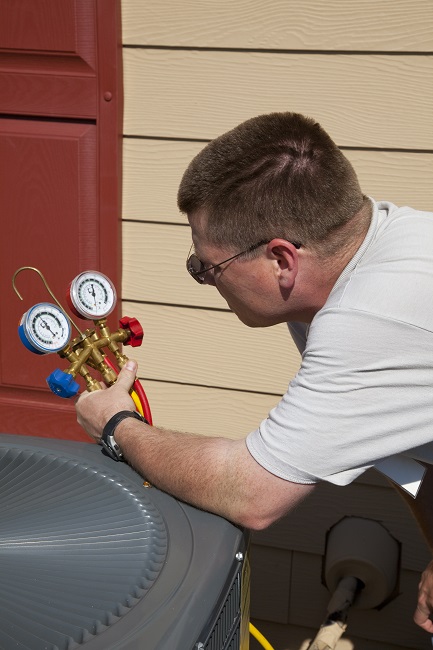Once problems start making your HVAC clang or drip with rushes of air, it’s time to call in an expert. DIY repairs and self-servicing can end in bigger malfunctions, invalidated warranties, or whole system replacement. But there are a few things you can do to help your air conditioning stay in good condition. Here are some of the big ones:

Change your air conditioner’s filter.
This is one of the central components of any HVAC maintenance procedure, but it’s one of the easiest to forget about. There’s no clear warning sign when a filter is no longer at peak performance or when the air had extra dirt and build-up that needed to be removed. But leaving a dirty filter in place can cause a lot of more serious problems.
As filters get clogged, they aren’t able to clean the air. This means your home’s air will cycle through with the same spores, dirt, and even carcinogens. It also means the machine will start to work harder and harder to push the air through the clogging filter. The overworked motor will cost you more money month over month, and the wear will lead to faster breakdowns.
Follow the manufacturer’s instructions for a minimum replacement schedule. Set reminders on your phone or make notes on the calendar. And what the box recommends is the longest reasonable lifespan. During high pollutant seasons, like winter and spring, check the filter more often.
Clean the vents.
Most A/C problems, like with most appliances, start with poor maintenance. The backlog of particles and the overworked parts develop into expensive wear and tear. So make sure you’re giving your air conditioner the easiest work environment possible by regularly vacuuming the vents to remove dust and pet hair. If you live in a humid region or have a kitchen or bathroom with poor ventilation, add a dehumidifier to cut down on mildew and mold spores.
While making your own repairs can be dangerous, handling a few essential maintenance tasks is crucial. Go to Tri County Air Care for more tips and to find trusted contractors.
